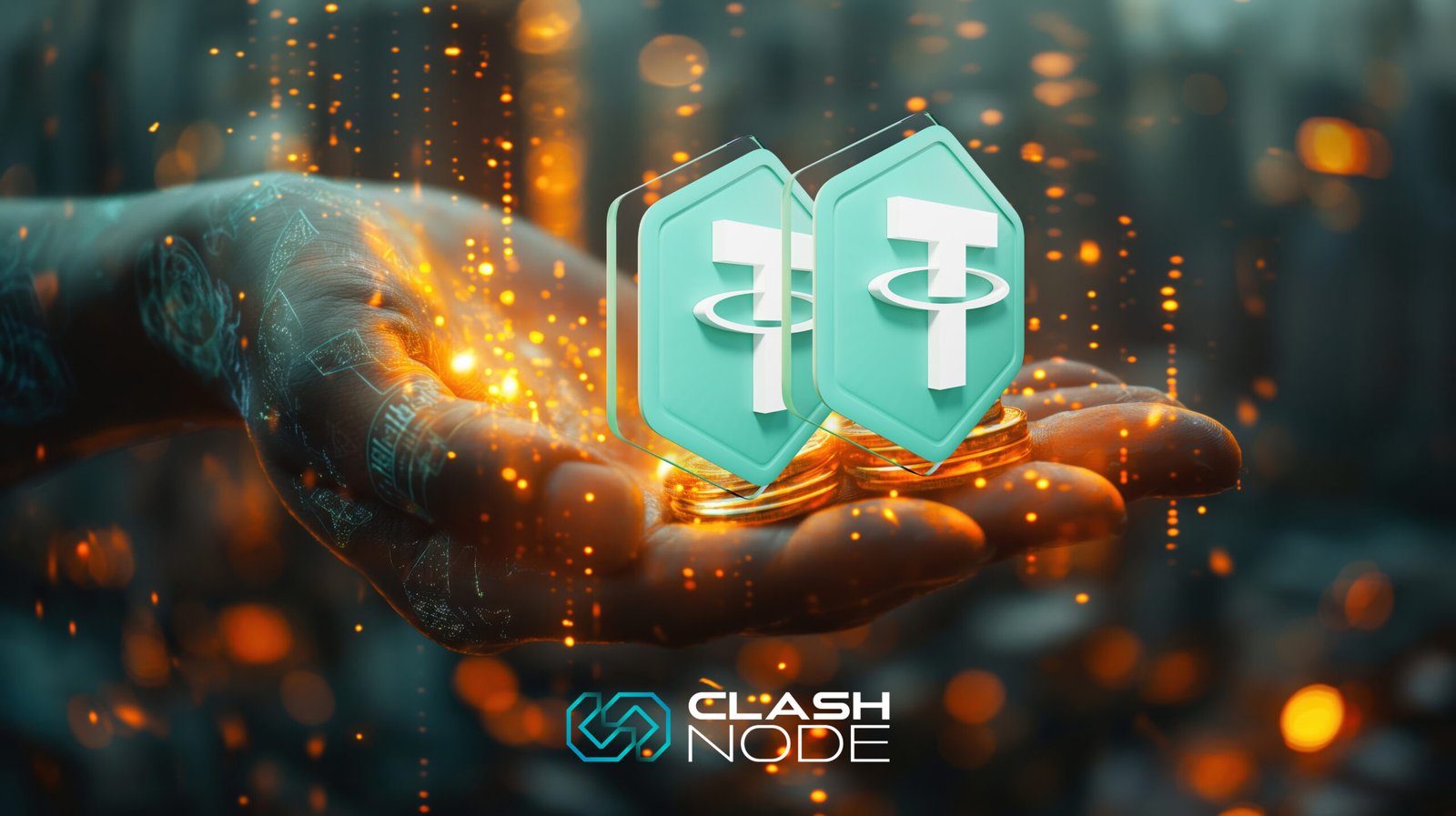Fireblocks, renowned for its digital asset security and management solutions, has unveiled enhancements to its integration with decentralized finance (DeFi) protocols such as Uniswap and Aave. These updates include features like Fireblocks Swaps, enabling direct trades within the platform, and the Token Allowance Manager, which offers greater control over smart contract permissions, mitigating security risks. […]
Categoria: Blog
Your blog category
Grayscale Updates Crypto Portfolio with a Focus on Altcoins: Market Impact
The cryptocurrency market is constantly evolving, and strategic moves by major players can significantly influence asset prices. A recent example is Grayscale, one of the world’s largest digital asset managers, which updated its portfolio to include more altcoins, sparking excitement among investors and industry enthusiasts. Increased Allocation to XLM and XRP Grayscale has adjusted its […]
Clash Node: The Revolution of USDX in Bridging DeFi and TradFi
The digital finance landscape continues to evolve at a rapid pace, with solutions bridging decentralized finance (DeFi) and traditional finance (TradFi) becoming a major trend. One standout example of this convergence is the introduction of USDX, a stablecoin launched by the Flare Network, which promises to revolutionize how assets are managed and utilized in both […]
Aave: Revolutionizing Finance as the Largest Decentralized Bank
The Aave protocol, a cornerstone of decentralized finance (DeFi), is reshaping the financial industry with its innovative approach. Founded in 2017, Aave began as a blockchain-based lending platform and has since evolved into the world’s largest decentralized bank, offering solutions that rival traditional financial institutions. How Aave Works Aave operates by allowing users to deposit […]
CLHC Token: Accelerating Innovation in the DeFi World with Artificial Intelligence and Decentralized Governance
The CLHC Token, developed by Clash Node, is revolutionizing the DeFi sector with an approach that combines accessibility and technological innovation. The token, built on the Polygon blockchain, offers a series of functionalities that aim to increase value and utility for users. In addition to acting as a digital financial asset, it also allows users […]
Telegram’s Transformation into a Super App: How It’s Embracing Web3 and Blockchain to Rival WeChat
Telegram is positioning itself as an all-in-one “super app” similar to China’s WeChat by expanding its features with a focus on Web3 and blockchain technology. According to Gracy Chen, CEO of Bitget, this strategy aims to transform Telegram into a more robust and multifunctional platform, enabling users to conduct financial transactions, make payments, and even […]
DeFi Loans Surge: A New Growth Opportunity in the Crypto Market
The decentralized finance (DeFi) sector is booming, driven by renewed optimism in the crypto market following recent U.S. elections. The surge in DeFi lending activity signals fresh opportunities for investors eager to tap into this dynamic space. Sustained Growth: Platforms like Benqi have seen a significant increase in loan activity, highlighting DeFi’s appeal for portfolio […]
TON and Telegram: Driving Mainstream Adoption of Decentralized Finance (DeFi)
The TON (The Open Network) blockchain, integrated into Telegram, could play a crucial role in the adoption of decentralized finance (DeFi) in the mainstream, according to a GSR report. The synergy between Telegram’s vast user base (over 950 million) and TON’s DeFi ecosystem creates an unprecedented opportunity to broaden the target audience. With TON surpassing […]
Tether Reaches Historic $120 Billion Market Cap During Uptober
Tether (USDT), a stablecoin backed by the U.S. dollar, has recently reached a record market capitalization of $120 billion. This milestone comes during the traditionally optimistic period for cryptocurrencies known as “Uptober.” The rapid growth of Tether’s market cap reflects its increasing popularity, especially in emerging markets and regions with limited access to traditional banking […]
AAVE: DeFi Lending Platform Generates $50 Million in Revenue Since the Start of 2024
Since the start of 2024, AAVE, a leading decentralized lending (DeFi) platform, has emerged as one of the largest revenue generators in the decentralized finance space. According to recent data from Token Terminal, the platform has accumulated an impressive $50 million in revenue over this period, solidifying its position in the DeFi market. What is […]






















